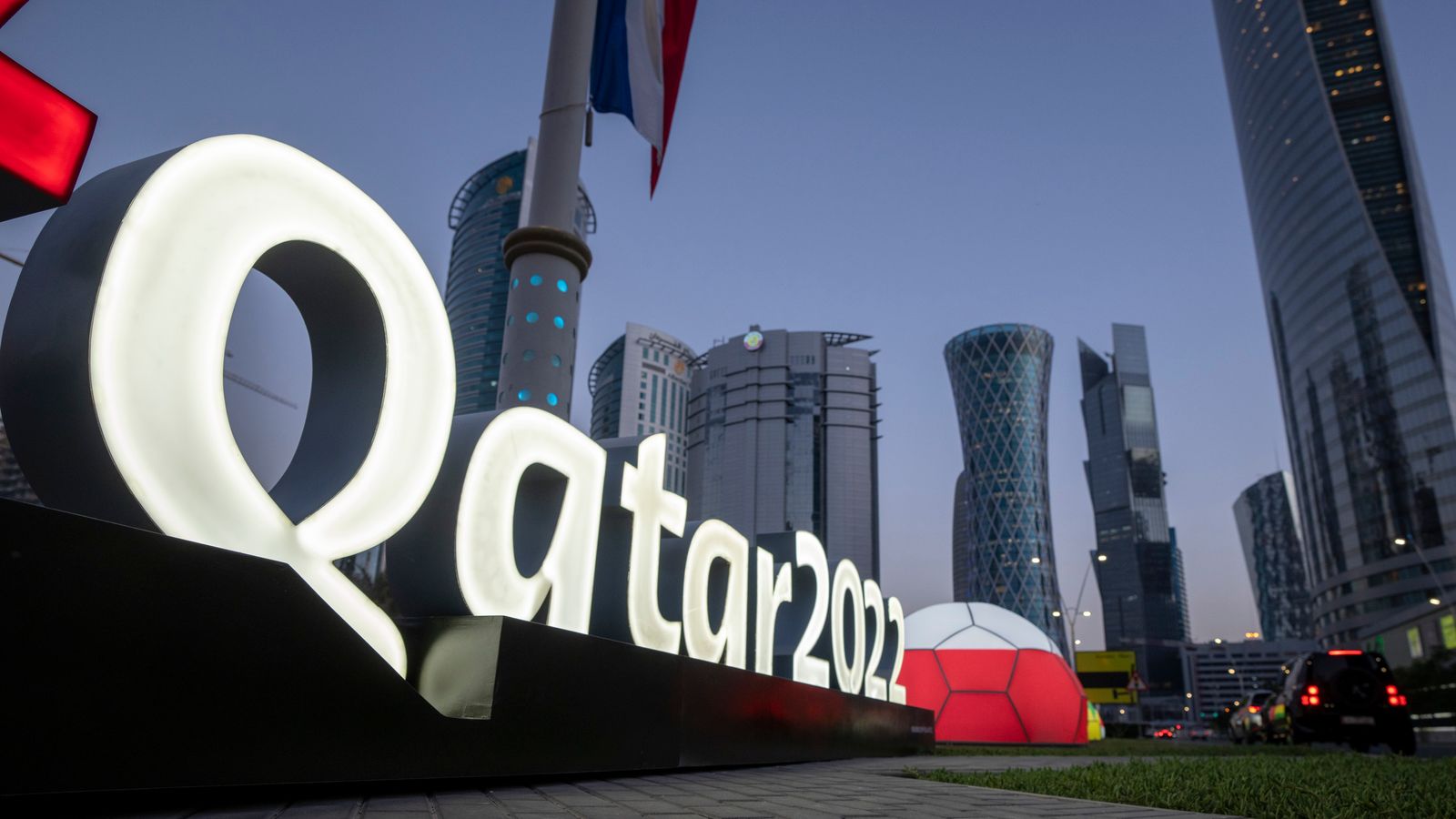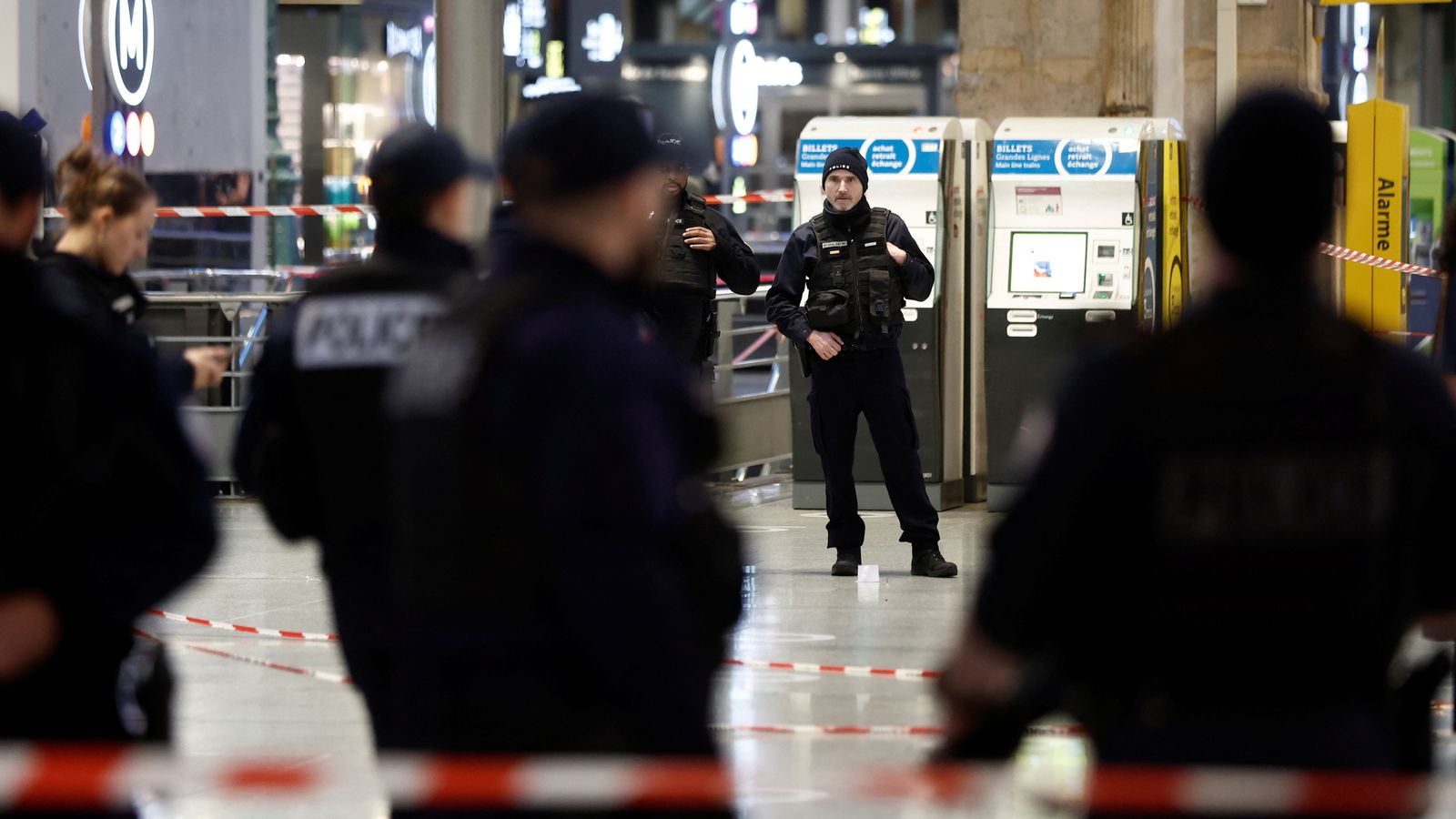Qatar has called up hundreds of civilians – and summoned back diplomats from overseas – for mandatory military service to operate security checkpoints at World Cup stadiums.
The conscripts are training to manage stadium security queues, frisk fans and detect alcohol, drugs or weapons concealed in ponytails, jacket linings or even fake bellies, according to documents seen by Reuters.
The civilians were told it was their “patriotic duty” to help, a source told the news agency.
“Most people are there because they have to be – they don’t want to get in trouble,” they said.
They are being taught to approach fans with “positive body language, focus and a smile,” the source continued, and avoid discriminating against fans on any basis.
The current group of civilians are on four months paid leave from their jobs at key Qatari institutions like state-owned QatarEnergy and the foreign ministry, the source said.
The diplomats have been brought back from the US, China and Russia, and are expected to return to their posts after the World Cup, the source added.
England and Wales reflect football’s delicate approach at the World Cup over rights violations in Qatar
Fans heading to the World Cup in Qatar and firms involved in tournament warned about cybercrime risk
World Cup set to start a day earlier than scheduled to allow Qatar to play first
With a population of less than three million – of which just 380,000 are Qatari nationals – Qatar faces a shortage of personnel as it gears up for the FIFA tournament from 20 November to 18 December.
Exploitation ‘rampant’
Qatar, which is widely considered to be close to an absolute monarchy ruled by the Al Thani family, is accused of having an appalling human rights record in the run-up to the tournament.
Amnesty International says exploitation and abuse of migrant workers has been “rampant”, with people exposed to forced labour, unpaid wages and excessive working hours.
A Qatari government official said in a statement to Reuters that Qatar’s national service programme would continue as normal during the World Cup.
“Recruits will provide additional support during the tournament as part of the regular programme, just as they do every year at major public events, such as the National Day celebrations,” the statement added.
Since 2014, Qatari men aged between 18 and 35 have trained with the military for at least four months as part of mandatory national service. Diplomats abroad have been able to defer their service.
Anyone who fails to sign up faces a year in prison and a fine of 50,000 Qatari riyals (£12,700).
Last week, Turkey agreed to supply more than 3,000 riot police to help beef-up security at stadiums and hotels.
Under the agreement, Ankara will also deploy 100 special operations police to Qatar, along with 50 bomb specialists and 80 sniffer dogs and riot dogs.
Last month, Pakistan’s cabinet approved a draft agreement allowing the government to offer troops for security at the tournament.
It did not say how many personnel would be sent, and there has been no confirmation from either country that a final agreement has been reached.







